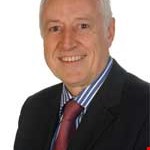
Professor Mike Watts - Interview with Professor Mike Watts, Professor of Education at Brunel University, London
Read about Mike's research work in Portugal.
Mike Watts’s new books for 2018: 1. Early Years Science Education: a contemporary look (with Alsion Silby) explores the major issues all early years teachers encounter in their daily professional lives. Find out more by visiting www.routledge.com/9780415658294 Published by Routledge, October 2018; 2. Interviewing in Educational Research (with Janet Powney) is a re-release of an established text on this important element of qualitative educational research, also published by Routledge, October 2018.
I have carried out major studies of classroom interactions often, but not always, concerning the learning of science. My recent work has looked at the public understanding of science, the manner in which feelings and emotions shape science learning, and modes in which classroom technologies can be used to enhance learning processes. In 2003 I was awarded a Higher Education Academy National Teaching Fellowship for excellence in teaching, and I used the award to further research and scholarship into learners' questions and questioning. In 2004 I was elected a Fellow of the Institute of Physics. I have undertaken consultancy work for universities in Brazil, been part of a World Bank Rapid Response team within Latin America, and a review team for teacher education in Lithuania. I am just completing a decade-long collaboartive study with colleagues at University of Aveiro, Portugal, on teaching and learning in higher education. I have been a consultant to the Teaching Council of Ireland and external examiner for the National University of Ireland, and am currently editor of the Mauritius Institute of Education's Journal of Education, and an examiner for the University of Technology Mauritius.
First in the Family Project
This project has explored the learning of students who are ‘first-in-their-family’ at Brunel University. We have talked to students of different ages, ethnicity, learner biographies and personal background. Three videos of their experiences can be seen here:
Interview with Poonam Bhatoa - Why Brunel? http://youtu.be/19hXPR6HnbA
Interview with Olufemi Oluwasanya - Why Brunel? http://youtu.be/3KiOnrjaPUw
Interview with Elizabeth Allen - Why Brunel? http://youtu.be/IXg6EiuVjDI
Journal citations
British Educational Research Journal
Canadian Journal of Science, Mathematics and Technology Education
Chemistry Education: Research and Practice in Europe
Early Child Development and Care
Education in Science
Educational Psychology
Educational Research and Evaluation
Education and Training
International Journal of Children’s Spirituality
International Journal of E-Literacy
International Journal of Science Education
Journal of Computer Assisted Learning
Journal of Curriculum Studies
Journal of Educational Television
Ontario Institute for Studies in Education Papers in STSE Education
Oxford Review of Education
Physics Education
Research in Education
Research in Science and Technology Education
School Science Review
Science Education
The Curriculum Journal
Career History
After studying phyics and maths, Mike qualified as a teacher at Doncaster College of Education and then taught physics and science in Hackney, London and in Kingston, Jamaica before entering educational research at University of Surrey. There, he led a project investigating young people’s understanding of physics. He left Surrey having helped establish a successful project and having completed his doctorate, to join the Schools Council’s Secondary Science Curriculum Review as Project Officer. Mike then joined Roehampton University London as lecturer and, in the following years moved to Senior Lecturer, Reader, Professor, Dean of School, Roehampton Federal Professor and then Principal of Froebel College.
Mike has carried out major studies of classroom interactions often, but not always, concerning the learning of science. His recent work has looked at ways in which learner’s own questions can be used as a basis for inquiry-based learning and teaching, the ways in which feelings and emotions shape learning, ways in which classroom technologies can be used to enhance learning processes, what it means to have 'science identity', the public understanding of science, and ways to develop teaching and learning in higher education.
In 2003 he was awarded a National Teaching Fellowship for his excellence in teaching, and used the award to further research and learners' questions and questioning. In 2004 he was elected a Fellow of the Institute of Physics. He has been visiting professor and examiner at many universities nationally and internationally, most recently at University of Aveiro in Portugal, University College Cork, Kings College London and the National Universities of Ireland. He has been consultant on many aspects of education in numerous countries.
Mike has published widely in his field of science education through his books, journal articles and many conference papers. He has been on the editorial board of the International Journal of Science Education, Research in Science and Technology Education, Research in Education and Early Child Development and Care. He is keen to teach and contributes to programmes at post-graduate, masters and doctoral level within the Department of Education at Brazil. He is the author of fifteen books, principally about science education, with more to follow in 2018 and 2019! He currently has twelve PhD students at various stages of their work.